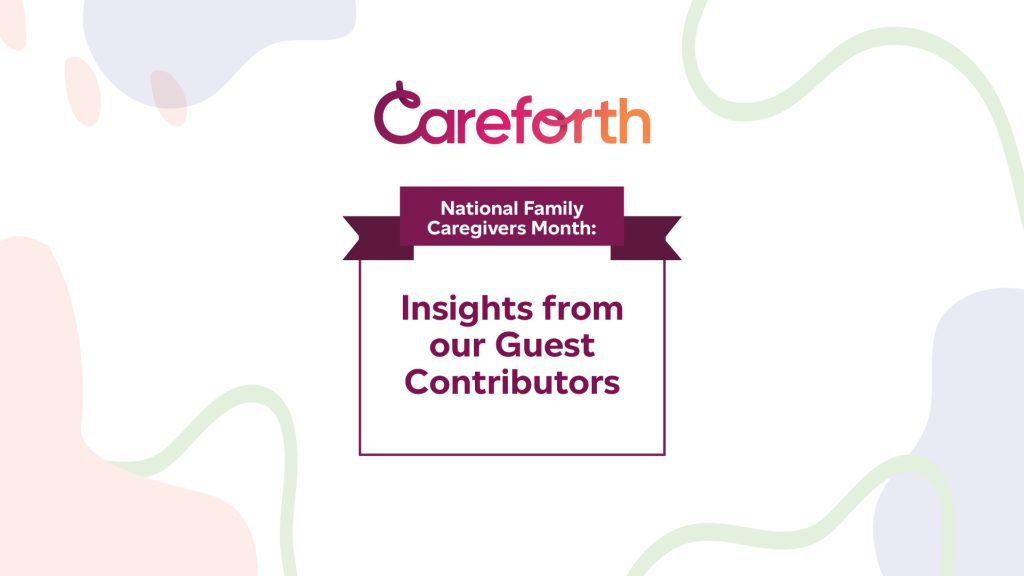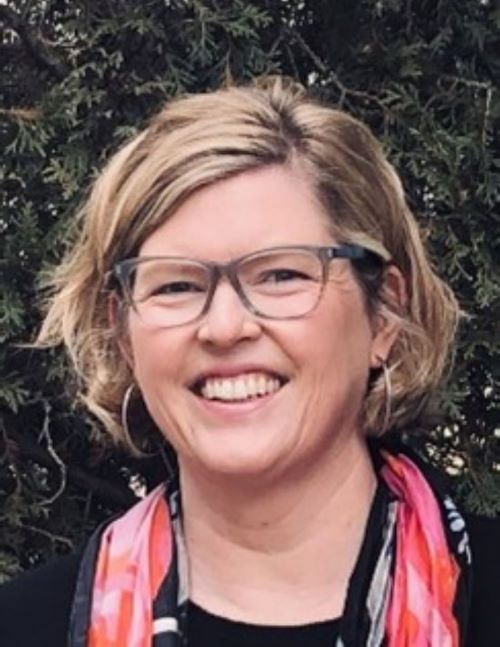
A Crucial Partner to Family Caregivers: Elevating the Role of Direct Care Workers
November is National Family Caregivers Month, a time to recognize and celebrate the 53 million family caregivers who provide care and support to loved ones. While we honor caregivers, it’s important to also shine a light on vital partners in care: direct care workers. Every day, direct care workers and family caregivers work together to support millions of older adults, people with disabilities, and people with chronic conditions to live with dignity and respect in the setting of their choice.
Despite ongoing federal, state, and community-level calls for investment in the care economy, direct care workers and family caregivers remain deeply undervalued and are still often overlooked entirely. Direct care workers face a lack of sufficient training, inadequate compensation and support, and limited opportunities for advancement. Family caregivers face burnout, care coordination challenges, economic impacts, and their own health risks.
The Together in Care® Initiative
PHI, the nation’s leading authority on the direct care workforce, and the National Alliance for Caregiving, who aims to make family caregiving more sustainable, equitable, and dignified, leveraged support from the John A. Hartford Foundation to launch the Together in Care initiative. Together, we are focused on strengthening our nation’s long-term care infrastructure by supporting and empowering the critical relationship between direct care workers and family caregivers.
In June, we released a policy brief that draws attention to urgent opportunities to drive change for direct care workers and family caregivers—and highlights the need for additional research and increased evidence that can inform critical policy and practice-based interventions. Through our efforts, we are engaging with leaders at all levels of government and calling out the need for action at the state, national, and federal levels.
At the core of our recommendations is the recognition that building a stronger support network for family caregivers must include a strategy to stabilize and strengthen direct care jobs.
The Importance of Direct Care Workers in the Care Economy
Over five million direct care workers—including nursing assistants, home health aides, and personal care aides—work alongside family caregivers in nursing facilities, residential care communities, and private homes every day across the country. These workers assist older adults and individuals with disabilities with activities of daily living (ADLs), support their social engagement, and help them maintain their health and well-being. Direct care workers also offer critical information to inform care planning and delivery. Often, they are a crucial partner for family caregivers managing the needs of a loved one.
Given our growing aging population and an increase in chronic illnesses, the demand for direct care workers is projected to rise significantly. Between 2022 and 2032, the direct care workforce will add just over 860,000 new jobs, representing the largest growth of any job sector in the country. Home care positions will become vacant as existing workers leave the occupation or the labor force altogether, resulting in about 8.9 million total direct care job openings that will need to be filled in the same decade.
Challenges Faced by the Direct Care Workforce
These occupations—primarily made up of women, people of color, and immigrants—are consistently poor-quality jobs. The data is undeniable:
- In 2023, the median hourly wage was $16.72. Median personal earnings were estimated at just $25,015.
- Because of low wages, 37 percent of the workforce lives below 200 percent of the federal poverty level.
- 36 percent are housing cost-burdened (i.e., spend more than a third of total household income on housing-related costs).
- Just under half access some form of public assistance: Medicaid, food and nutrition assistance, or cash assistance.
- Less than 50 percent of workers hold employer or union-sponsored health insurance—the rest depend on Medicaid, Medicare, or other public coverage.
Direct care wages compared to wages in competitive industries like retail and fast food add to the challenge of recruiting and retaining workers. Creating high quality direct care jobs will require strategic and long-term investments including fair compensation, training, opportunity, and more.
The 2022 National Strategy to Support Family Caregivers recognizes that direct care workers are essential partners who complement and support family caregivers. Direct care workers and family caregivers are two sides of the same coin; when we uplift direct care workers, we also uplift family caregivers.
Celebrate Caregivers and Direct Care Workers This November
This National Family Caregivers Month, we celebrate caregivers and the direct care workers who support these caregiving journeys. Their shared dedication and compassion make a profound impact on the lives of those they serve. By advocating for better direct care jobs, we can help ensure that caregivers and their loved ones receive the quality care they deserve. To be truly Together in Care, we must work to create a stronger, more compassionate caregiving community that supports both family caregivers and direct care partners.
About the authors:

Amy Robins is Senior Director of Policy at PHI, a national organization committed to strengthening the direct care workforce by producing robust research and analysis, leading federal and state advocacy initiatives, and designing groundbreaking workforce interventions and models. For more than 30 years, PHI has brought a 360-degree perspective on the long-term care sector to our evidence-informed strategies. As the nation’s leading authority on the direct care workforce, PHI promotes quality direct care jobs as the foundation for quality care.

Toni Gingerelli is Director of Policy and Advocacy at National Alliance for Caregiving (NAC), a national membership coalition. Established in 1996, NAC brings together more than 50 national healthcare companies and nonprofits, care innovators, caregiving advocacy organizations, and financial services leaders to build health, wealth, and equity for America’s 53 million family caregivers. From championing our nation’s first-ever national caregiving strategy to releasing new insights on the realities of caregiving, NAC works tirelessly to make caregiving more sustainable and equitable through agenda-setting research, programming, and policy change.
More insights like this:
-

63 Million Reasons to Show Up for Family Caregivers
Read more: 63 Million Reasons to Show Up for Family CaregiversBehind every statistic is a story. Behind every number is a person who deserves support. Each day, across living rooms and kitchen tables in every corner of the country, 63 million Americans wake up and are faced with an extraordinary challenge: to care for a loved one. Quite often they do not choose…
-
Ritwik Bhattacharya Joins Careforth as Chief Technology Officer
Read more: Ritwik Bhattacharya Joins Careforth as Chief Technology OfficerCareforth proudly welcomes Ritwik Bhattacharya as our new Chief Technology Officer. Ritwik brings more than 20 years of experience leading technology and product teams at innovative organizations including Headspace Health, Compass, Microsoft, and Intel. “One of the most powerful aspects of technology is how ubiquitous it has become over the last few decades,”…
-
Bradley Cooper’s Caregiving Reminds Us Who’s Really Holding Families Together
Read more: Bradley Cooper’s Caregiving Reminds Us Who’s Really Holding Families TogetherThe new documentary, Caregiving, comes at a critical moment. As Congress weighs major decisions that could impact families across the country for years to come, this film offers something powerful to inform those deliberations. It provides a window into the lives of family caregivers, and a lesson on the pivotal points in time…